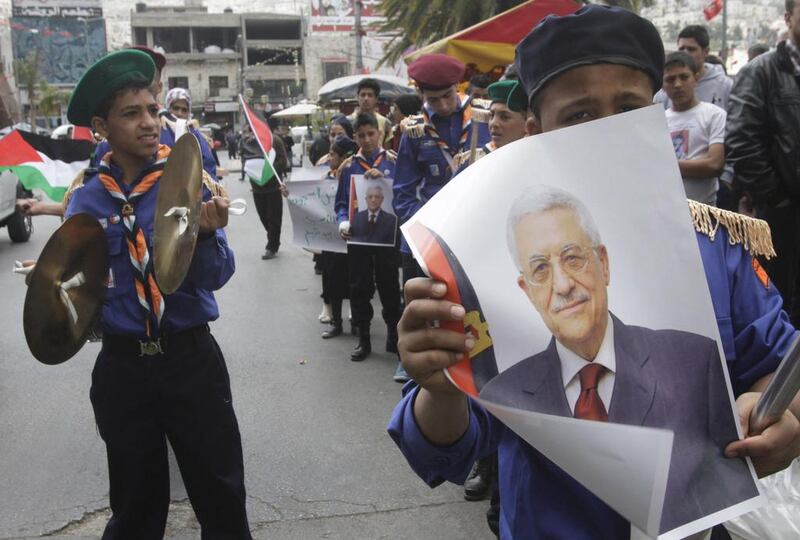RAMALLAH // Palestinian leaders insisted yesterday they did not want crisis-hit peace talks with Israel to collapse.
Negotiating teams from both sides were meeting last night to discuss a way out of the deadlock.
The latest crisis began when Israel reneged on a promise to release 26 Palestinian prisoners by the weekend.
It escalated when Israel reissued tenders for controversial settler homes in occupied East Jerusalem, the Palestinians applied for membership of 15 United Nations agencies and the US secretary of state John Kerry cancelled a trip to Ramallah for talks.
Nevertheless, senior Palestinian Liberation Organisation figure Yasser Abed Rabb said yesterday: “Kerry knows the reality. We don’t want these efforts to finish.”
“The Palestinian leadership … wants the political process to continue. But we want a real political process, without tricks,” Mr Abed Rabbo said.
The Palestinian foreign minister Riyad Al Malki echoed the support for talks, but said the membership request for the international conventions had been submitted.
Although Mr Kerry cancelled his visit, he also said it was “completely premature” to write off the peace process.
A US state department official said both sides had “taken unhelpful steps over the last 24 hours” but neither the Palestinians nor the Israelis wanted to end the negotiations.
“After … weathering previous moments of tension and public flare-ups, we’ve learnt it’s short-sighted and premature to make an immediate determination on what will be possible,” the official said.
Mr Abbas’s announcement on Tuesday came soon after Mr Kerry had wrapped up a 15-hour visit to Jerusalem during which he twice met the Israeli prime minister Benjamin Netanyahu.
Sources said the two had discussed an emerging proposal to resolve the prisoner issue and ensure the continuation of the peace process into 2015 that included the release of the imprisoned American Jewish spy Jonathan Pollard, long sought by Israel, in exchange for concessions towards the Palestinians.
In Israel, there was surprise and anger over the Palestinian move for international recognition.
One hardline minister warned it would cost the Palestinians dearly.
“They will pay a heavy price,” the tourism minster Uzi Landau said, and Israel could “apply sovereignty” over unspecified areas of the occupied West Bank.
* Agence France-Presse and Associated Press





